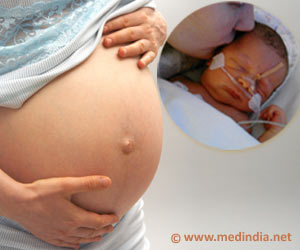Whereas preeclampsia is a serious condition that can occur after 20 weeks of pregnancy usually characterized by high blood pressure, protein in the urine, and severe swelling.
The new study published in the British Journal of Obstetrics and Gynaecology examined more than 125,000 women who experienced two consecutive singleton births in Western Australia from 1998 to 2015.
“When both pregnancies were complicated by pre-eclampsia, the risk of a subsequent preterm birth increased 10-fold after an initial term birth and 17-fold when the first birth was preterm, compared to women who had an uncomplicated first pregnancy,” said Lead author and Ph.D. candidate Jennifer Dunne.
The first birth at full term was considered a reduced risk for preterm delivery in the next pregnancy till now. However, there is emerging evidence that a complicated first pregnancy, regardless of whether the baby was delivered early or at full term, increases the subsequent risk of a baby being born prematurely.
The main pregnancy complications examined included pre-eclampsia, placental abruption (the detachment from the wall of the womb), small-for-gestational-age, and perinatal death (stillbirth or neonatal death in the first 28 days).
Having any of these complications in the first pregnancy puts a woman at an increased risk of preterm birth in their next pregnancy, regardless of whether that first birth ended at full term or preterm.
Likewise, a woman whose first pregnancy ended in a preterm delivery was at an increased risk for each pregnancy complication in the second pregnancy.
The findings of this study will help clinicians to better identify women who are at an increased risk of either preterm birth or complications in their subsequent pregnancies.
Further research is now needed to reveal the specific pathways that explain these strong links between pregnancy complications and preterm births, whether they be genetic, pathological, and behavioral, or other recurrent issues.
Source: Medindia



